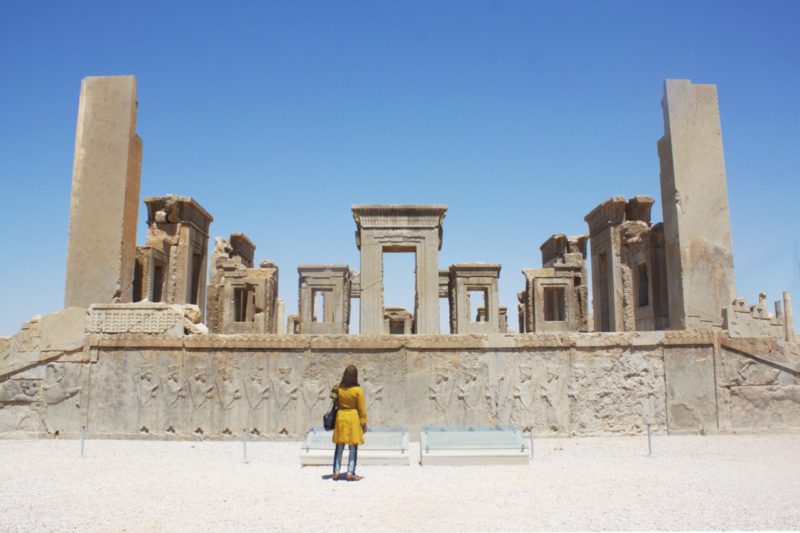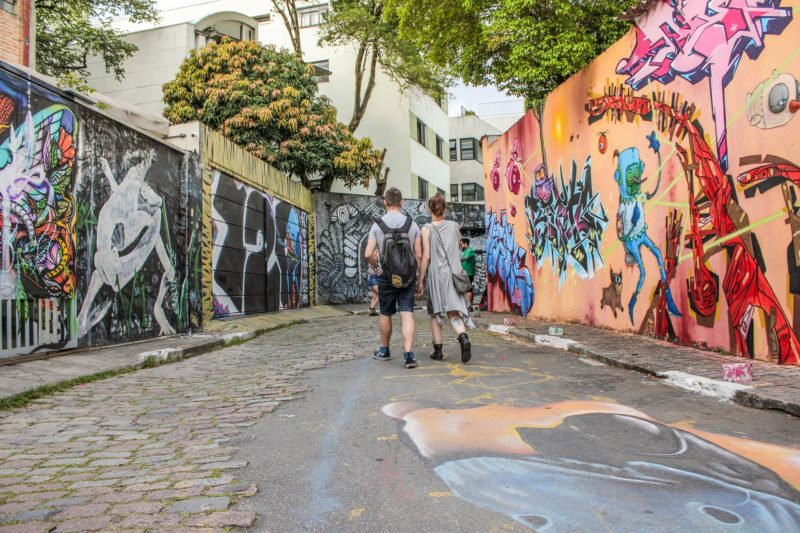In 1961, American President John F. Kennedy founded the Peace Corps as a “bold new experiment” for US citizens to do humanitarian work abroad. Little did he know that this national foray into philanthropic travel would later give rise to the complex, global phenomenon we now call voluntourism. As both an international industry and an individual act, voluntourism has become a subject of heated debate in travel media, primarily for the conflicting forces that fuel it: altruism and egoism.
But responsible travelers are no strangers to controversy; in fact, building a more sustainable tourism industry depends, in part, upon pursuing it. So to help you wade into the murky waters of voluntourism responsibly, we’ve put together this introductory guide.
What is Voluntourism?
Voluntourism: A form of tourism in which travelers participate in voluntary work, typically for a charity. The definition of voluntourism is simple enough, so why is its reputation so complicated?
In brief, voluntourism has spawned much controversy due to its (mostly unintentional) negative consequences. Each year, millions of people from wealthy, industrialized nations travel to poorer countries with admirable intentions of doing good abroad. Religious organizations, student groups, and impassioned individuals gladly fork over program fees for “life-changing” altruistic travel experiences, unaware that their funds may be laundered by unscrupulous operators who profit from exploiting the suffering communities they pretend to serve.
Yet, even with a contentious reputation, voluntourism has the potential to perpetuate good in the world if we can parse out the harmful practices that gave it a bad rap in the first place. After all, voluntourism is merely a concept that marries volunteering with tourism. This integration has become mainstream in recent years. And there are myriad activities that encompass it: study abroad, work placement, volunteer travel, fully hosted volunteer vacations, and trips of all lengths, from gap-year programs to week-long intensives.
If we want to make a positive impact as travelers, we should first understand the problematic aspects of voluntourism. As always, there is no easy roadmap to navigate the convoluted path toward ethical travel -especially when the journey intersects with deep-seated humanitarian issues. A nuanced perspective, however, can help us find more confident footing in pursuit of altruistic travel. So let’s dive in with a brief look at the pitfalls of voluntourism, followed by its potential benefits and our top suggestions for how to be a good voluntourist!

6 Problems With Voluntourism
Problem #1: Institutionalizing children sets them up for neglect, abuse, and developmental challenges.
Widespread volunteer programs in orphanages exacerbate these problems.
In wealthy countries, institutionalizing children (or placing them in residential care) has almost completely stopped. Instead, governments and NGOs offer services that can help families keep children with them; when that is impossible, they seek adoptive parents or foster families. While foster care certainly has its share of pitfalls, institutionalizing children is an indisputably inferior alternative. Paradoxically, the same affluent countries that have done away with the orphanage model provide a stream of charitable giving to fund orphanages in poorer countries.
Of course, to stay in business, orphanages need a steady supply of “orphans.” Beleaguered parents may hand over their children to “baby finders” because they have special needs or because the family can’t afford to send them to school. For some parents, the idea of food, education, and daily attention for their child makes orphanage care seem preferable to living at home.
For example, in 2005, Save the Children investigated orphanages in Sri Lanka and found that 92% of children had a living parent. Based on accumulated data from orphanages worldwide, Unicef extrapolates that residential care is greatly overused for children who are not orphans. According to many reports by Lumos, (a London-based group founded by JK Rowling that seeks to end the institutionalization of children), orphanages often keep children malnourished and living in filth, despite a steady influx of donations. Finally, orphanages have also been linked to child trafficking, neglect, and cruelty.
Problem 2: Voluntourism companies often take work away from the locals who need it.
Noble feelings may fuel voluntourism, but unscrupulous economics often funds it. Many organizations offer volunteers the chance to dig wells, build schools, and do other construction projects in poor villages. From a financial perspective, it’s easy to understand why: if a charity organization hired locals for unskilled labor, it would be spending money. When it uses volunteers who pay to be there, it is raising money. With this structure, the charity protects its own financial interests and deprives locals of the full benefits they could receive from gainful employment on public works projects. When locals spearhead such projects, they tend to last longer and serve their communities better.
To support local-led projects, travelers must know where to look. Grassroots Volunteering is a little-known online resource that connects travelers to causes and communities in their destinations. This site consists of a dual database that allows users to search for:
- Volunteer Opportunities: Independent volunteer organizations all over the world. Travelers can use this search engine to locate community-based organizations in need of their skills.
- Social Enterprises: Small businesses that operate with an underlying social mission. According to the website, “all businesses are geo-located so travelers can easily support grassroots initiatives in the places they visit.”
Problem 3: Travel and accommodation expenses for volunteer travelers do not benefit host communities.
When planning a volunteer vacation, consider how much revenue goes toward the tourist experience and whether or not that money could be better spent elsewhere. Critics of voluntourism argue that charity organizations willing to spend thousands of dollars on airfare so that volunteers can spend two weeks teaching English abroad, would redouble their impact by employing several local teachers instead.
For example, an elementary school teacher in Haiti makes a maximum monthly salary of 60,000 HTG or approximately 816 USD. Depending on the airline and origin point, the cost of one or two roundtrip airfares covers one teacher’s top salary for an entire month. Extending this logic, why do charity organizations pay for high-end volunteer accommodations when donations alone could employ local workers on infrastructure and housing projects in their own neighborhoods?
To circumvent this issue, volunteer travelers might consider forgoing externally organized volunteer programs altogether. Instead of paying for a fully-hosted voluntourism program, travelers can deliberately infuse money into local communities by booking home stays and patronizing restaurants, shops, and businesses that support local charities or community projects. With a little bit of resourcefulness and creativity, travelers can curate altruistic itineraries for themselves by attending local food drives, religious services, or neighborhood clean-ups in their destinations. Something as simple as graciously tipping a cab driver, picking up a few extra groceries to show appreciation for a host family, or raising awareness for unpublicized issues on social media can go a long way.
Problem 4: Some voluntourism companies take advantage of shady budgetary loopholes.
Every voluntourism organization has different financial obligations depending on its mission and location, so there is no one-size-fits-all budget structure. But if explicit financial information is completely unavailable, or a large (over 20%) portion is reserved for “administrative costs,” volunteer travelers should consider these red flags.
Ideally, a reputable volunteer vacation operator will be transparent about its allocation of funds, including program fees and private donations. The first place to look for this information is the program provider’s website. Many reputable organizations call attention to their financials as a way of proving their credibility. Some even post their annual financial reports, including a precise breakdown of revenue and expenses.
If the company website is out of date, voluntourists can also vet programs through aggregators like Charity Navigator or GuideStar. These sites compile financial information about thousands of nonprofit organizations (primarily based in the United States).
Charity Navigator has evaluated over 160,000 different charities and nonprofits over nineteen years. It uses a four-star system to rate them on metrics of financial health, accountability, and transparency.
GuideStar provides access to 1.8 million IRS-recognized tax-exempt organizations and “faith-based” not-for-profits. It offers members access to annual reports, tax forms, revenue and expense data, listings of CEOs and board members, and contact information.
Problem 5: Voluntourism can unintentionally perpetuate the “white savior complex” and neocolonialism.
Wealthier nations risk perpetuating the “white savior complex” when they deploy charity projects to communities in crisis without centering the voices of local leadership. Without a diligent commitment to understanding the social, political, and economic climate surrounding a community in need, voluntourists can unwittingly reinforce the myth that meaningful change occurs when rich white people step in to lend a helping hand to people of color.
Furthermore, critics of voluntourism admonish against its perilous and inadvertent reinforcement of cultural stereotypes and unequal power dynamics between tourists and hosts. The basic voluntourism model brings economically powerful tourists (who have enough discretionary resources to afford a volunteer trip) to less powerful host communities (deemed poor or disadvantaged enough to be voluntour-ed). As a result, recipient communities can become disempowered, feeling more like objects of charity than coequal participants.
Voluntourists can help mitigate these harmful impacts by educating themselves on the root causes underlying the economic disparities, racial tensions, and post-colonial relationships between their home countries and those they visit. This task is easier said than done and requires uncomfortable confrontations with personal biases and gaps in understanding.
Problem 6: Short-term volunteer vacations cannot solve complex issues.
Volunteering with a school or community group can provide young people with transformative learning opportunities. But when these groups travel abroad, they often fail to meet the needs of the communities they serve due to inadequate skill sets, a lack of cultural understanding, and insufficient time to make any real headway. Because student volunteers are not committed to long-term involvement, they usually participate in service projects like basic construction, painting, tutoring in English distributing supplies, or simply befriending children in need of social support. These projects may appear helpful on the surface. Still, student travelers should be wary of short-term voluntourism projects unless the supervising organization has made a long-term commitment to supporting structural change.
Furthermore, studies indicate danger in the tendency to frame short-term voluntourism as “trips that help the poor” and recommend instead that young volunteers view these experiences as cultural exchanges meant to generate knowledge about and respect for others. When students are given the opportunity to explore systems of poverty and inequality in depth before going abroad, this type of service-learning can be very beneficial for everyone involved. For example, these two cultural exchange programs offer intentional programming to help young learners maximize their impact and personal growth pre-departure and post-return: Atlantic Impact (which also provides domestic experiences) and The Wandering Scholar.
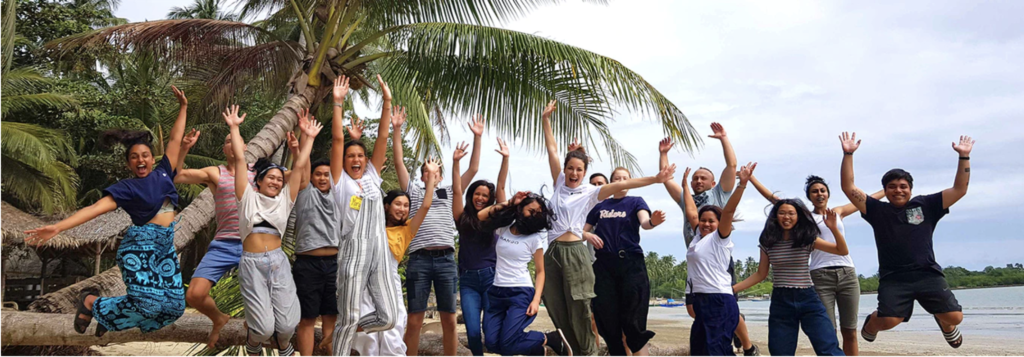
What are the Benefits of Voluntourism?
Despite the sweeping repudiation of dubious charity operations in travel media, volunteer vacations can still be rewarding and effective when travelers are well-informed! In fact, the critiques of voluntourism can guide travelers toward programs that derive maximum benefits from the time and money they donate. By choosing their programs wisely and prioritizing cross-cultural engagement rather than seeing themselves as benefactors to the “less fortunate,” voluntourists can bring out the best in this controversial domain.
Those who love to travel know the life-changing benefits of embracing unfamiliar cultures. For voluntourists who immerse themselves in a community to witness and participate in the daily challenges it faces, this can feel even more profound. Ideally, the host community and the volunteer group develop a more nuanced understanding of one another, inching us that much closer to a more compassionate global community as a result. By exposing themselves to social inequalities, environmental issues, and political realities, voluntourists may develop an interest in ongoing activism.
In the same vein, voluntourism experiences invite meaningful discourse among participants. If travelers continue to have a broad discussion about voluntourism, we can learn how to create more impactful volunteer travel opportunities in the long run.
On a more tangible level, tourism stimulates economies. Voluntourists can help maximize the economic benefits for their host countries when they purchase goods from local markets, go on tours, and eat at local restaurants.
Finally, the benefits of voluntourism are more difficult to quantify than its drawbacks, since reported benefits mostly come from the volunteers themselves rather than the host communities. Case studies on voluntourism projects focus on measurable statistics to assess their impact. Without anecdotal evidence from host community members to temper them, these statistics highlight the industry’s failings as a whole. Travelers who want to make an impact can begin to rewrite this narrative by championing organizations that empower host communities with strategies for long-term vitality rather than reinforcing dependency on external aid.
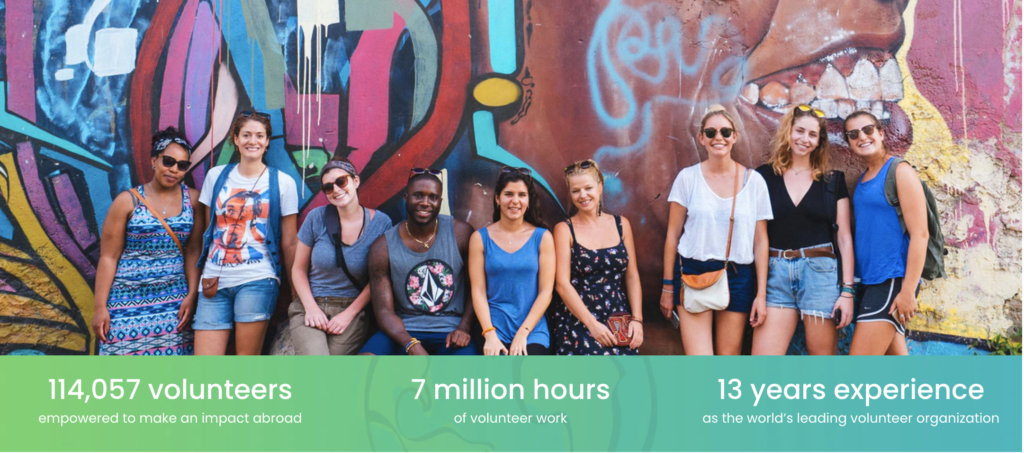
Voluntourism Companies We Vouch for
IVHQ
International Volunteer Headquarters offers hundreds of award-winning programs run by local teams who deeply understand the issues faced by their communities. IVHQ is also one of the few certified B Corp voluntourism companies out there. This means that the company has undergone a robust assessment for its impact on workers, customers, community, environment, and corporate governance. B Corp status is a long-term commitment and requires an annual recertification process to maintain.
IVHQ also stands out for its transparency regarding program fees. Volunteer vacation packages include everything from airport pickup, to meals, to 24/7 support. To provide volunteers and communities with the best possible experience, IVHQ employs local teams who thoroughly understand each site and its specific needs. These teams create more local job opportunities, ensure that local people remain in long-term employment, and maintain projects over time so they can meet their long-term sustainability goals. Contact us for a 10% discount on your registration fee.
World Learning
Since 1932, World Learning has endeavored to fortify the commitment of individuals, institutions, and communities to “create a more sustainable, peaceful, and just world.”
It all began with a program called, The Experiment in International Living, which, to this day, sends young people abroad to learn how to live together by living together. Click here for more information about their commitment to sustainability.
World Learning has also recently emerged as a leader in virtual youth exchanges through The Experiment Digital – free virtual international exchanges for students who cannot travel.
For older learners, The School For International Training offers accredited international higher education options with undergraduate, master’s, and doctorate programs developed around a framework of the world’s most critical issues. This branch was originally launched in 1964 as a training center for outbound Peace Corps Volunteers.
The third branch, also called World Learning, is a global nonprofit dedicated to empowering everyday citizens to instigate positive change through six core areas: people-to-people exchanges, global education, institutional strengthening, youth workforce and entrepreneurship, civic engagement, and TESOL English teacher training. Interested travelers can get involved in one of the many international internship opportunities listed online.
Unlike many organizations of its kind, World Learning Inc invites inquiry and promotes trust by making its financial statements and impact report readily available on the website.
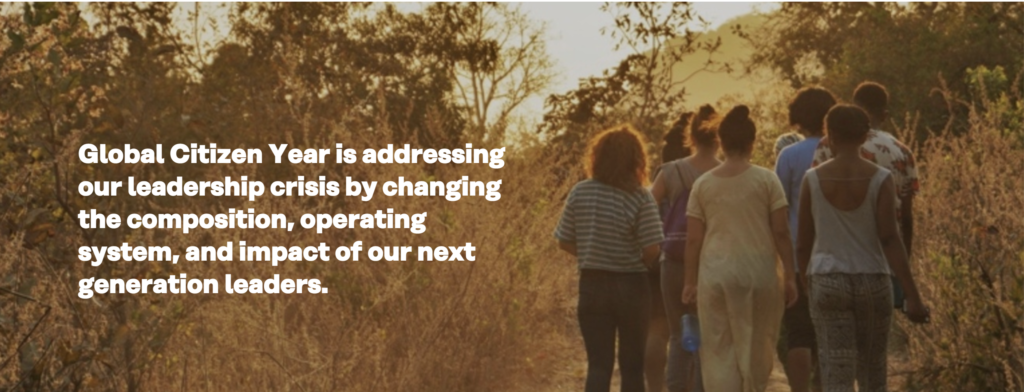
Global Citizen Year
This not-for-profit organization offers two intensive programs for students aged 17-21: a 12-week academy program and an 8-month fellowship. The fellowship program invites applicants ready for a year-long service-learning experience in Brazil, Ecuador, or India and selects promising future leaders (irrespective of their financial circumstances) through a rigorous application process. Once selected, volunteers spend an academic year living with a family and apprenticing with local education, health, and sustainability initiatives. Longer homestays facilitate meaningful connections, immersive language learning, and deeper cultural exchange. Global Citizen Year helps fellows build a more global network and develop cross-cultural communication skills that help them drive social impact long after they have returned to their home countries.
This organization focuses primarily on shaping the next generation of global leaders and prides itself on giving more financial aid than other gap year programs, ensuring that talented and passionate young people are not excluded from this educational opportunity. According to the website:
80% of our Fellows have received some level of need-based financial aid, and more than 30% received a full scholarship. We are committed to selecting leaders with the highest potential, regardless of financial circumstances. Since 2010 we have awarded over $25 million in scholarships — more than all other “gap year” programs combined.

Five Alternatives to Volunteer Vacations
- If you want to help children without contributing to orphanages, consider sponsorship through a trusted organization such as World Vision instead. World Vision is a Christian charity from Canada which adheres to very high standards in financial accountability.
- For environmentalists, organizations such as Earthwatch and the Audubon Society offer expeditions for citizen scientists to help gather data relating to climate change.
- If you want to get your hands dirty, make an account with WWOOF, Worldwide Opportunities on Organic Farms. This farm stay platform connects volunteers to farmers who need assistance all over the world. Travelers can make an impact by carefully choosing an opportunity that aligns with their environmental ideals.
- Trade your skills for accommodation with World Packers! World Packers is an international platform that connects travelers with welcoming hosts worldwide, allowing them to share their skills in exchange for accommodation. Skill exchange encourages people to connect directly without the structure of a fully hosted volunteer vacation. It enables voluntourists to take full responsibility for their impact and requires more hands-on planning than a traditional volunteer program. Travelers can choose from various experiences, including home stays, hostels, permaculture projects, farms, schools, and more.
- If you’re looking for a budget-friendly volunteer vacation, consider using sites like Workaway or Helpstay. By linking to hosts directly, you’ll avoid paying any program fees that a voluntourism organization could potentially misuse.
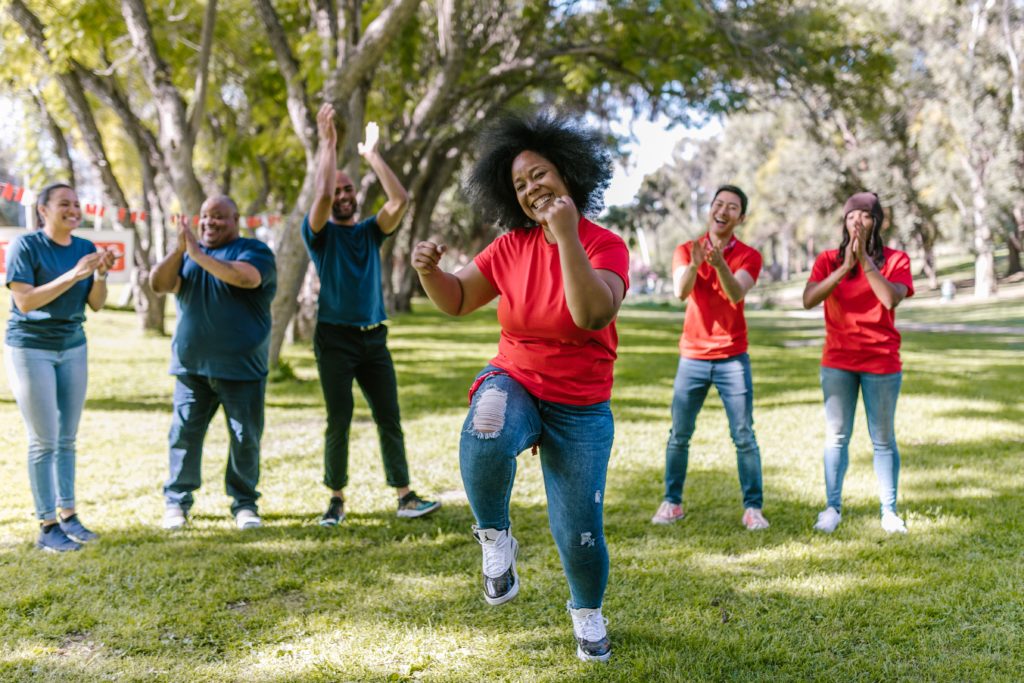
How to Be a Great Volunteer Traveler
The hardest part is finding a program that lives up to its claims. But once you have chosen a program and destination, you can enhance your volunteer work by being a gracious and respectful visitor! In closing, here are a few things to keep in mind:
1. When planning a hosted volunteer vacation, ask the following questions (hint: IVHQ has you covered on all accounts!)
- Does the operator outwardly promote that they are a sustainable volunteer organization?
- Do they visibly contribute to the local community?
- Do they respect the environment, customs, and current issues of the specific location?
- Are they transparent about their affiliations and allocation of funding?
2. Choose a program that allows you to share your strengths and make a meaningful contribution! For example, if you are great with kids and have foreign language skills, a teaching program might work best for you. If this decision feels daunting, take a look at IVHQ’s helpful guide for prospective voluntourists.
3. Inquire about the sustainable development goals of your program. Ideally, volunteer presence will not be necessary indefinitely…does the volunteer site have any benchmarks in place for achieving self-sufficiency?
4. Look for a voluntourism company with strong links to its host community. If it were suddenly unable to operate, would the community have the tools to function without it?
5. Make the most of your volunteer vacation with responsible travel etiquette
- Book responsible tours that support local guides during your free time.
- Support local artisans, farmers, and family-owned stores with your purchases
- Don’t leave your new friends with lasting memories in the form of waste! Donating clothes to a local charity in your travel destination is great, but dumping your unwanted trash is not. When in doubt, pack in, pack out!
Disclaimer: Hey reader! Some of the links in this post are affiliate links. This means that if you make a purchase using any of these links, we’ll earn a small commission at no extra cost to you. Hidden Lemur is committed to promoting sustainable travel, and we only partner with brands that we believe contribute positively to that cause.












